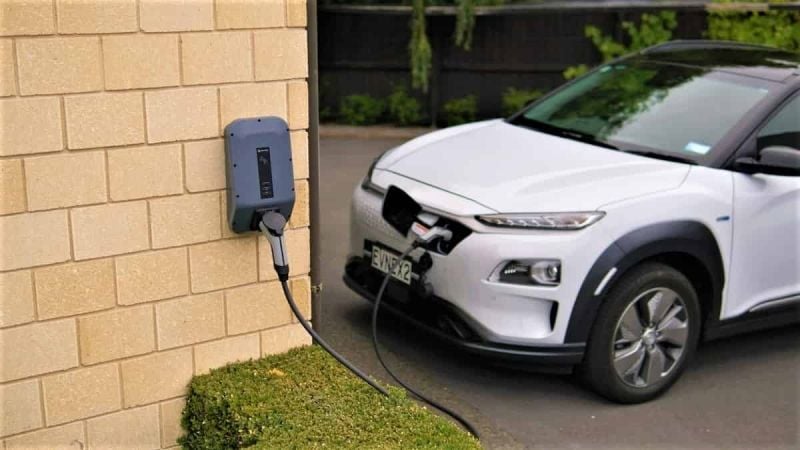Going EV?
Thinking about “going electric” to help lower your fuel costs and help save the environment at the same time? As it turns out, both reasons are faulty as we’ve learned in an earlier article that discusses why a lot of reasons for owning an EV are based on lies.
However, if you are wondering more about the personal cost of owning an EV, according to a recent Kim Java YouTube channel episode, owing an EV does not necessarily mean that you are going to see significant savings overall compared to buying an internal combustion engine (ICE) vehicle---at least not immediately.
Related article: The Right Time to Buy Your First EV is Now with These 3 Models Says Consumer Reports
Related article: Why You Should Not Buy an EV Today
While the consensus currently is that buying an EV over and ICE vehicle is a break-even deal in the long run---depending on the vehicle---we are headed toward an EV world as the growing popularity, increased sales and growth, and availability of new EV models demonstrates that car buyers want an EV for their next car.
Related article: What You Need to Know Before Buying a Toyota or Lexus Hybrid This Year
So, what are some of the costs of owing an EV that you can expect? Here is a summary of those costs gleaned from the video for a quick look at what you will find out from the video:
EV Registration Fee---(i.e., the gas tax gotcha) that adds on anywhere between $50-$225 per year depending on your state, which are expected to increase in the next 2 years. That hidden cost can be more than the gas tax someone pays driving 50,000 miles per year in a gas guzzler.
Tire Lifespan---heavier weight of an EV plus increased takeoff torque shortens tire life. Expect $200-$300 per tire replaced every 25,000 miles.
Multiple Charging Expenses---there are multiple additional costs when it comes to powering your EV’s battery pack. For example, if not provided with the car you will need to buy a charging cable; have installed a home EV charging unit, pay an electrician to upgrade your home circuit box to handle fast charging capabilities; and of course there’s the charging in a public EV station.
Charging at home will cost roughly $10 whereas at a public charging station you can expect to pay 3X more. Plus---and here’s a kicker---you could be charged up to $1 per minute for going past the time it takes to fully charge your vehicle; and, even higher rates under certain conditions.
EV Insurance Premiums---basically, higher tech cars are going to cost more to insure. For example, a Tesla Model 3 will cost about $2,300 per year to ensure (about $600 more per year than a comparable quality ICE sedan).
Out of Warranty Repairs---since there are no right to repair laws concerning EVs, if something breaks that is outside the warranty protection you are essentially at the mercy of the vehicle dealership and its mechanics. Going elsewhere or doing it yourself are rarely viable options.
Related article: Turns Out Tesla Owners Technically Do Not Own Their Cars
The Video
That all said, for a little more about the details here is the video posted below. You can start at timepoint 2:11 to get right to the information you will want to hear.
5 Hidden EV Expenses No One Will Tell You About
And finally…
For additional articles about owning an EV or a Hybrid, here are some selected articles for your consideration:
• The Most Common Maintenance Issues of Electric Vehicles
• Hydrogen Fuel Versus Lithium Ion Versus Solid State Batteries in Cars
• Toyota Hybrid Owner Experience with an Aftermarket Hybrid Battery
COMING UP NEXT: The Worst Deals on New Cars Right Now
Timothy Boyer is a Torque News automotive reporter based in Cincinnati. Experienced with early car restorations, he regularly restores older vehicles with engine modifications for improved performance. Follow Tim on Twitter at @TimBoyerWrites for daily new and used vehicle news.
Image Source: Pexels
Set as google preferred source












Comments
I'm not sure grounding your
Permalink
I'm not sure grounding your article to begin with using Scotty Kilmer as the basis for the truth is the best source. :)
I call BS on this entire
Permalink
1. Re: EV registration fee: EV's are no different than any other vehicle, all have a registration fee, no additional fee.
2. Re: tire lifespan: tires come in varying quality, the Michelins on my new car we're crap as are many OEM versions that only last 20-25k miles. Read the tire ratings on every tire, get one that has 800 tread wear rating and it will go 60-80k miles, depending on how the driver drives the vehicle. All tires have gone up in price, sometimes every two months. Truck tires were $1000 each this past March, went up another 17% 2 months later.
3. Multiple charging expenses: A 2018 Kia Soul EV for example is one of the most efficient EV's on the road getting 5.1 miles/ KwH and costs $4.90 to charge from 6 miles to 144 miles (full charge Level 1) at home. Doesn't cost anything @ solar charging stations (Level 2) and free at many Level 3 stations, and even when buying electrons to fill up has costa max of $20. US. 40 minutes without the fee associated from blocking the station after filling up, (it's called mutual respect). Also, one does need to buy a home charger. The Kia Soul EV comes with a home charger (level1 which charges the car over night).
4 Re: Insurance Premiums: Maybe Tesla's 2021 273 autopilot crashes or the phantom braking problems are causing the high insurance cost for their cars. My 2022 EV 6 cost $800/year as of 6/16/2022.
5. Re: Out of warranty (OOW) repairs: There are so many fewer moving mechanical parts in an EV, plus costs of the muffler system, radiator flushes, oil changes, engine filters that there are so many fewer OOW repairs, period. Also with brake regeneration, there is rarely a need for brake jobs.
Torque News, you have lost all creditibility as a reputable source.
Ohio charges $200/year…
Permalink
In reply to I call BS on this entire by Sam Mulroney (not verified)
Ohio charges $200/year additional to the $50 registration, approximately equivalent to an ICE car if both drive similar miles, but EVs generally are driven less than half the miles. Hybrids get a $100 charge, BTW.
Because they weigh more than the same size ICE car, tires will yield fewer miles, to be sure. Gently driven, I'd expect the tires on our two Camry weight Bolts to last no longer than 30k miles.
Using consistent regen, I've noticed that the rear rotors are substantially degraded by lack of use and weather exposure and should be turned or replaced at 20k+ miles, an expense
not expected but now looming on both cars.
Hard to tell whether insurance is more, as we get various discounts for good credit, safe driving, minimum miles driven.
Basically, only other maintenance has been tire rotations and rear wiper blades. save some, pay some.